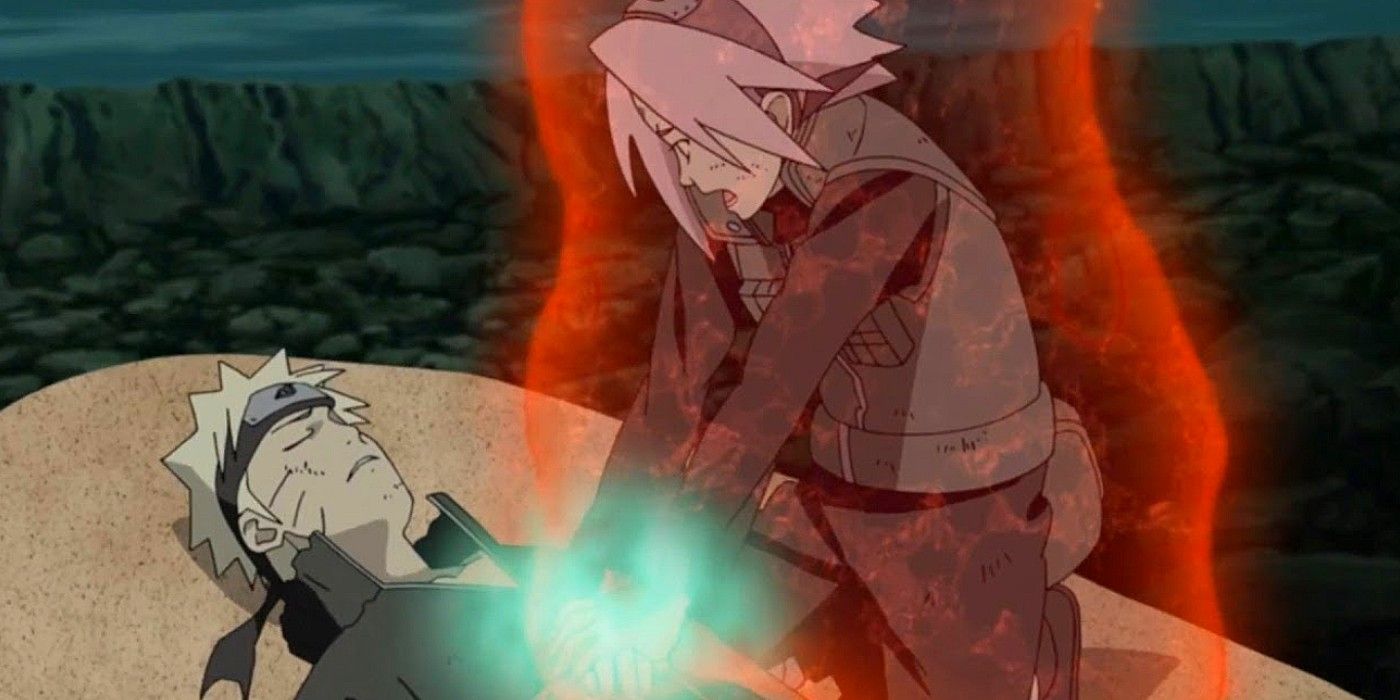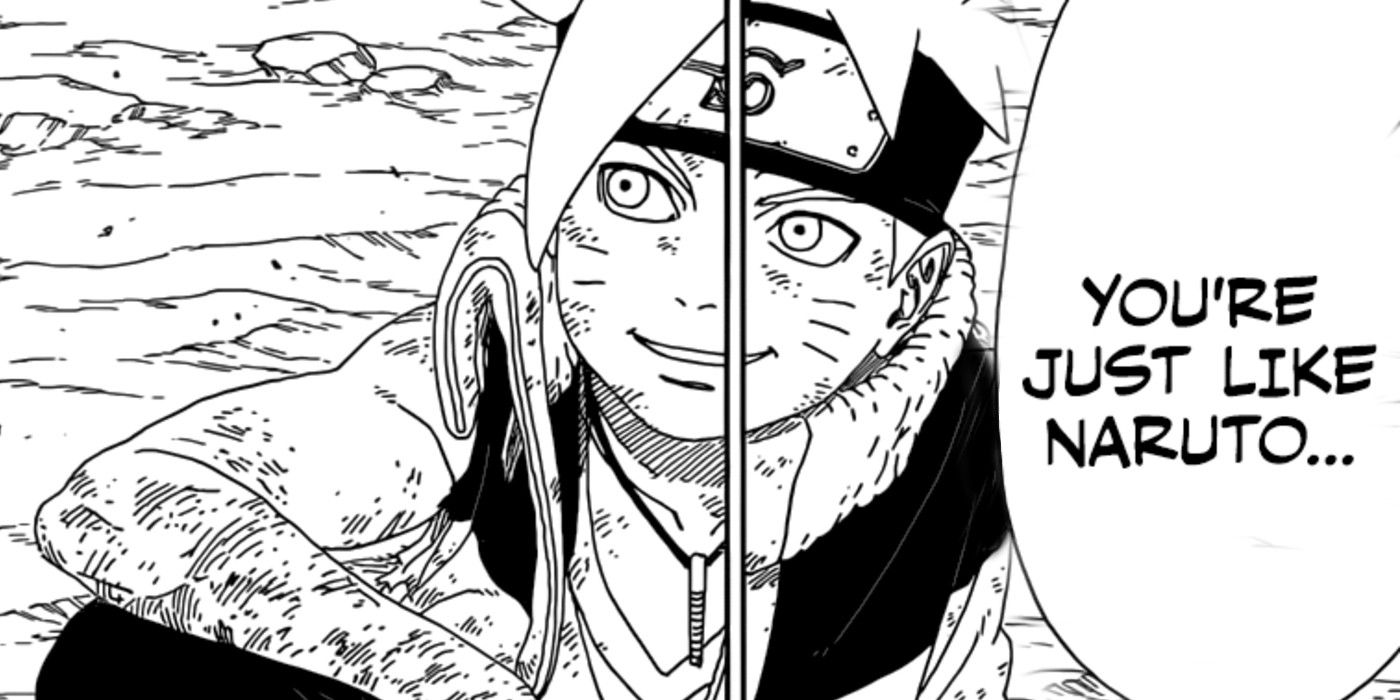Naruto, created by Masashi Kishimoto, began in 1999 and ended in 2014, telling a satisfying story about its ninja protagonist. And yet, not two years later, Naruto was back in action, or rather, his son Boruto took center stage, with a movie in 2015 and a manga debut in 2016. This took the popular series to interesting heights and new twists, one of the most intrepid being the "death" of Naruto in the building new series. Does Naruto, a protagonist who has spanned literal generations, truly die in a series focused on his son?
To recap an epic tale: Naruto Uzumaki was a ninja orphan belonging to Konohagakure or the Hidden Leaf Village. The villagers and his fellow shinobi shunned him through his troubled childhood, as his father had entrapped a powerful nine-tailed spirit fox inside of him, which could wreak havoc if left unchecked. These facts didn't deter Naruto in his life goal to become a Hokage, a sort of ninja-president that protects Konoha. He utilized his unfortunate fate, and after Chunin Exams, shinobi world wars, even losing his arm to God, Naruto became the Nanadaime Hokage. So, adventure over, everyone can sleep as deeply as they would in a Temple of Nirvana Technique, right? Not entirely.
Creating a spin-off that makes Naruto's son the protagonist did two things: it continued the previous narrative, answering any questions or hang-ups that persisted from the original, while also taking the narrative weight from Naruto's shoulders and passing it down to his son, allowing the story to explore its core themes of endurance and generational trauma in a fresh way. Unfortunately for Naruto, this narrative weight came alongside what some fans call "plot armor" - the narrative's tendency to avoid killing off characters it needs to tell the intended story.
Boruto: Naruto Next Generations introduced a new power called Kama, or in the localization, Karma. Karma is a special type of seal only used by the all-powerful Ōtsutsuki Clan, whose god Naruto defeated (with the help of Sasuke) during the Fourth Shinobi War, with both of them losing an arm in the process. This was considered to be the ending battle of the Naruto series. Boruto picks up with a new enemy in the form of an Ōtsutsuki Clan member - Momosuki - who reveals exactly what Karma does; in the event that a member of the Ōtsutsuki Clan is killed, they can transfer their biological data into a vessel, to be reborn once the new DNA takes over.
Momosuki's original target was Naruto, and while Boruto saved him by killing Momosuki, Momosuki placed his own Karma into Boruto. This means that sometime in the future, Momosuki will try to resurrect via Boruto and pursue his original target - the young ninja's father. In a later adventure, Boruto saved the day and his dad by unwittingly using the sealed power of Momosuki, resulting in theorized hidden consequences. Boruto could have transferred some of Momosuki's energy to Naruto or the demon inside of him. This means Naruto could die becoming the very thing he sought to destroy. If Masashi Kishimoto treads this tragic narrative path, things may not go so well for either father or son.
The stage is set for the manga to follow multiple tragic paths, with both characters at risk from the forces inside them and ultimately from each other. Given the themes of both works, it would make complete narrative sense for Naruto to sacrifice himself to spare Boruto, allowing the son to endure thanks both to the trauma and love passed down from his father. Given how well this would tie into the story being told through Naruto and Boruto, it seems likely that Naruto will meet his end in the manga, though it will hopefully at least be a mighty sacrifice for the ages, and one which leaves Boruto ready to face his own future.


